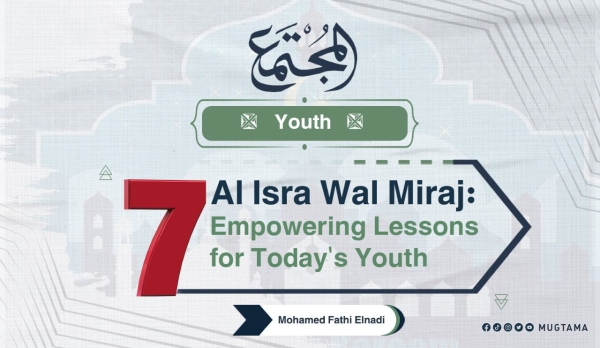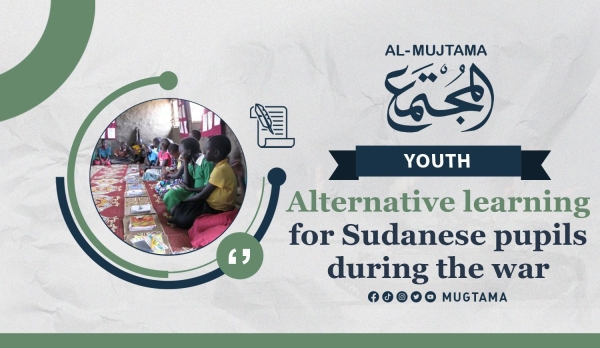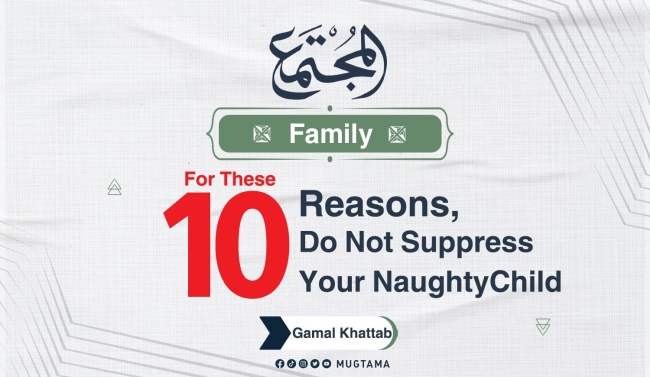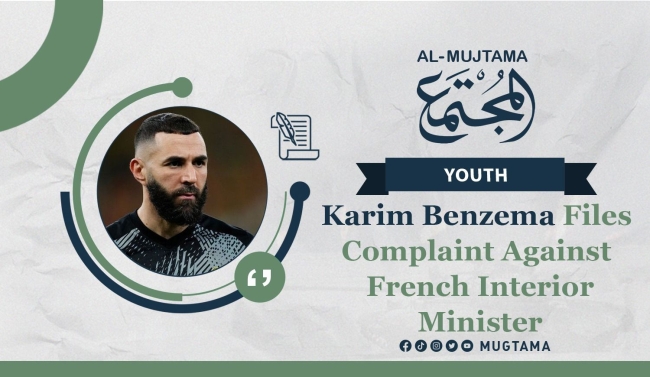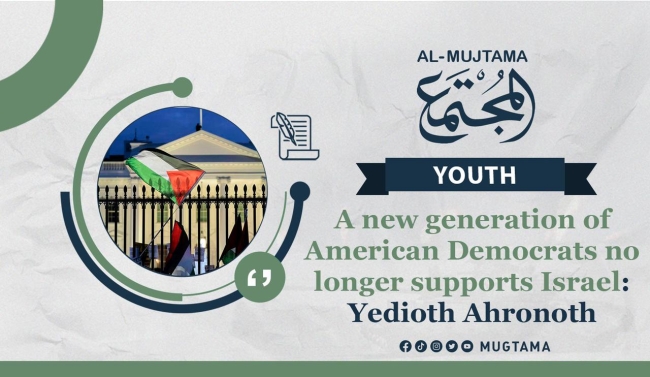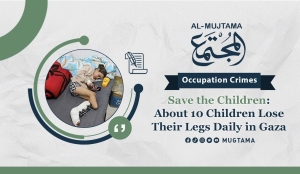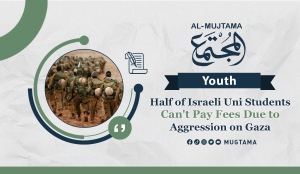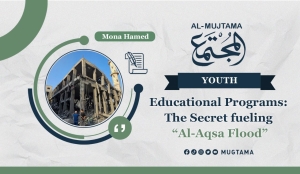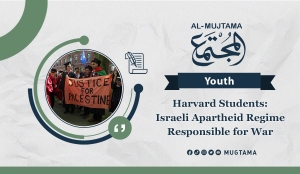The Messenger of Allah (ﷺ) endured the most severe hardships from Quraysh. It was not just a matter of rejecting the new message; it was a war on all fronts.
The war against his preaching manifested in the defamation and false accusations against the Prophet (ﷺ), turning people away from him, and torturing his vulnerable followers, among other things.
Then came the economic war, characterized by the blockade imposed on the Shi'b Abi Talib (Abu Talib Valley), starving Muslims and their supporters, and cutting off trade with them.
The social war emerged in the form of boycotting Muslims and their supporters, preventing any marital relationships among them.
The political war was evident when they did not leave the migrants in Abyssinia in peace. Quraysh, not content with them being away from their homeland, families, and friends, still sent their envoys to Najashi to return the migrants.
The Prophet (ﷺ) did not only face all of this, but the trials intensified with the loss of his beloved wife Khadijah and his uncle Abu Talib. Quraysh and its ignorant hurt the Prophet more than ever before. The Prophet (ﷺ) said, “Quraysh never harmed me so much as after the death of Abu Talib.” (1)
Thus came the Night Journey, an unprecedented and unique event in human history. During this journey, the veils of time and space disappeared. Time ceased to exist, so a group of prophets gathered in the Al-Aqsa Mosque, led by the Prophet (ﷺ) in prayer. The dimensions of space folded, and the Prophet (ﷺ) crossed the universe, transcending into other realms.
A journey that united the realm of the unseen with the seen, the world of bodies with the world of spirits, the earth with the heavens, and the ancient with the modern.
A journey that can be summarized as the Prophet (ﷺ) witnessing “the greatest signs of his Lord.” (An-Najm: 18).
This journey took place nearly at the heart of the prophetic mission, after a period of hardship and just before the migration and the establishment of the Islamic state. It serves as a bridge, a beacon in the middle of the path, guiding those on the journey towards Allah.
It provides Muslims with inspiration, drawing lessons and reflections that they can utilize in their lives, guiding their behavior towards Allah. It stands on a long path of resistance, offering the youth valuable lessons that can strengthen their hearts and guide them towards Allah.
1- Resisting Grief:
Adversities and trials persist throughout a person's life. However, one should not allow sorrow to stand in the way of their life or keep holding on to the past and its pains. Instead, one should turn away from pain and continue on their path. The Prophet (ﷺ) lost his beloved wife Khadijah, but despite the love and pain, he married our mother believer, Sawdah bint Zam'ah, and continued his mission despite the hardships, obstacles, and opposition.
2- Resisting Despair and Frustration:
All the circumstances surrounding the Prophet (ﷺ) and his companions did not lead them to despair. The siege, boycott, rejection, and stubbornness of Quraysh were significant obstacles, but they did not halt the flow of the call to Islam.
A believer, guided by the light of Allah, knows that obstacles are part of the journey. Yet, these obstacles teach patience, trust in Allah, certainty in His promises, steadfastness in the truth, and the understanding that one's work continues until their last breath. The delay in victory and empowerment does not indicate an error in the path but signifies that triumph comes only after pursuit.
3- Resisting Falsehood:
During the persecutions that the Prophet (ﷺ) and his companions experienced, it was still vital for them to resist falsehood using all available methods. Falsehood thrives on the division of the people of truth and is prolonged through the weakness of those who uphold the truth.
4- Resisting the Loss of Support:
You may rely on an ally or supporter in your life, but fate might not keep them by your side. Your ultimate allegiance should be to Allah alone, acknowledging that He is your everlasting, true supporter. The loss of support can serve as an opportunity to strengthen your resilience and self-reliance.
5- Resisting Abandonment:
The taste of betrayal is bitter, especially when it comes from those closest to you, whom you anticipate goodness from and expect support from. However, as long as you remain on the path of truth, you’ll succeed, while those who betray will only encounter failure. The reward is immense during betrayals in times of siege, war, and crises. It is mentioned in a Prophet’s narration: “'After you will come days of patience, during which one who does good deeds will have a reward like that of fifty men among you. They asked, 'You mean among them?' He (ﷺ) replied, 'No, among you, because you find helpers for goodness, and they do not find helpers for it.'” (2)
6- Resisting Mockery and Ridicule:
People of truth may face times of hardship when believers of weak faith are affected, inclining towards mockery instead. At such times, the balance scale may shift, with jihad being labeled as terrorism, honesty as naivety, falsehood as cleverness, and so on.
However, those with strong beliefs ignore such talk, remaining unaffected and undeterred. While it may sadden them, they continue to strive on their path.
When the Prophet (ﷺ) went on the Night Journey (Al-Isra') to Al-Aqsa Mosque, the people began to talk about it. Some of them renounced their faith after believing and trusting in him.
They looked for Abu Bakr and said, “Have you heard that your friend imagined he was taken by night to the sacred house?”
Abu Bakr said, “Did he say that?”
They said, “Yes.”
Abu Bakr said, “If he said it, then it is the truth.”
They said, “Do you believe he went by night to the sacred house and returned before morning?”
Abu Bakr said, “Yes. Verily, I believe something even more astonishing than that. I believe he has received revelations from heaven for everything he does.”
7- Resisting Showing Off:
If we project Al Isra Wal Miraj into our reality, we can liken it to the movement of the body and the ascension of the heart and soul.
Movement involves taking necessary actions, while the ascension of the heart occurs through faith and trust in Allah.
This is evident in the Palestinian resistance example. They worked to the best of their ability while having faith and trust in Allah, so tunnels were dug without anyone knowing, in which those who sacrificed their lives remained anonymous.
The mujahideen in the “Al-Aqsa Flood” battle, who inflicted the enemy severe losses, remain unknown to us. They rely on Allah, prepared for this day, and accepted Allah's decree.
When Umar was informed about the death of An-Numan ibn Muqarrin and it was said that certain individuals were also injured or killed, along with some who are unknown, he replied, “But Allah knows them.” A man then said, “There’s also another who ruined himself.” So, a man from Ahmas, known as Malik bin 'Awf, said, “That's my uncle, O Amir; people claim that he threw himself into destruction.” Umar replied, “Those people lied. He is one of those who bought the Hereafter with the worldly life.” (4)
Resisting desires doesn’t appear to others. A person does not go out to people and say, “I strive against myself, my desires, and Shaitan,” but it is merely an inner struggle that only the person and their Lord know of.
We convey these lessons to the youth so they may understand that they are the pillars of the Ummah and the key to rising from these tribulations. They should realize that Al Isra Wal Miraj are not just passing events but an eternal spirit that instills hope and emphasizes Allah's support for His believers until the Day of Judgment.
-------------------------------------------------------------
(1) The Prophetic Biography, by Ibn Hisham (1/416).
(2) Ahkamul Quran, by Ibn Arabi (2/228).
(3) Narrated by Al-Hakim in “Al-Mustadrak” (4407(.
(4) Narrated by Al-Bayhaqi in “As-Sunan al-Kubra” (9/46) from Husayn bin 'Awf.
------------------------------------
Alternative learning for Sudanese pupils during the war
Children's Determination
The kids in Wadi Al-Khalil town, are always one step ahead because they wake up early to attend a school under the auspices of the charity organisation, in the midst of the challenges of war and lack of formal education provision. The uniforms and bags the community is wearing can be interpreted as a symbol of their unity and determination in the time of adversity.
Community Initiatives
The charity school receives support from volunteers, either the local community members or the IDP(refugees who had resettled due to the ongoing war in Khartoum). Retired teachers are also involved as educators, counselors, vocational trainers, religious advisors, spiritual mentors, and integral facilitators in the program for the economically challenged students.
Supportive Environment
The school is sited in the little Wadi Al-Khalil region where it offers the children a safe environment for learning and growing. The building, that was donated by a generous donor, is a place that is home to all kinds of recreational activities.
Volunteer Efforts
Instances such as Rawan and Reem who were forced to drop out of the university and lose their jobs because of the war now help in teaching students. They provide students with courses in Arabic, English, theory of math, and Revelation, which enables them to keep up with the studies they miss.
Parental Concerns
Just as Manasek, parents wonder how their kids can succeed in the classroom amidst all those distractions. The center's courses serve to remind students of what they already know and also help them in the re-entry process into formal education once the war is over.
Challenges Faced
The education system in Sudan has been undermined by the war and the disruption caused has forced students to drop out of school completely Although other means such as e-learning might also help, there are infrastructural challenges as well as logistical problems that makes implementation difficult.
Government Response
Unfortunately, the government's decision to remain with distance learning rather than resuming schooling has worsened the situation, considering the fact that Khartoum's students are currently seeking education in other states.
Schools have also been repurposed as shelters for displaced individuals, adding to the strain on the education system. Despite these challenges, the community's resilience and the dedication of volunteers continue to provide hope for Sudanese students seeking education in the midst of war.
For These 10 Reasons, Do Not Suppress Your Naughty Child
Parenting is truly a complex and multifaceted journey that requires careful consideration and understanding. While it may be tempting for parents to strive for an image of perfect children, it is crucial to recognize the detrimental consequences of suppressing the natural mischievousness and naughtiness of a child. We will highlight the importance of allowing children to express their naughty tendencies, acknowledging the role of curiosity and creativity in their development, and discussing how appropriate discipline and guidance can be more effective than suppression.
- Naughtiness is a natural aspect of childhood, often arising from curiosity and a thirst for knowledge
It is through this mischievousness that children explore their environment, experiment with boundaries, and develop their cognitive and social skills. By suppressing their naughtiness, parents risk hindering this vital exploration process, impeding their child's creativity and problem-solving abilities.
- Suppressing a child's naughtiness can lead to negative emotional impacts
Suppressing a child's naughtiness can lead to negative emotional impacts, potentially resulting in frustration, rebellion, or a lack of emotional intelligence. When suppressed, a child finds it difficult to express themselves openly, which can foster an environment of emotional repression. On the other hand, allowing them to embrace their naughty tendencies encourages emotional development, as they learn appropriate outlets for their emotions and how to express themselves effectively.
- Behavioral issues often arise from suppressed naughtiness
Behavioral issues often stem from suppressed naughtiness, as pent-up energy from being unable to explore or act on their mischievous impulses can manifest in negative ways. Allowing children to embrace their innate naughtiness provides them with an outlet for their energy, leading to decreased levels of frustration, restlessness, and irritability.
- Suppressing a child's naughtiness can lead to the development of low self-esteem.
Suppressing a child's naughtiness may inadvertently contribute to the development of low self-esteem. When constantly reprimanded or punished for their playful behaviors, children may internalize a sense of guilt and shame. This can lead to a negative self-perception, hindering their confidence and ability to fully engage in social interactions.
- Focus on guiding the child's naughty tendencies
Rather than suppressing, parents should focus on guiding their child's naughty tendencies in a positive and constructive manner. Discipline, education, and setting boundaries are instrumental in helping children understand the societal norms and appropriate behaviors. Through gentle guidance, children can learn to channel their naughtiness effectively, ensuring it does not interfere with their well-being or that of others.
- Uniqueness and individuality are essential
Uniqueness and individuality are essential components of personal growth. By suppressing a child's naughtiness, parents may inadvertently stifle their child's natural inclination towards non-conformity, creativity, and innovation. These traits often lead to exceptional achievements later in life and should be nurtured rather than suppressed.
- A healthy balance between discipline and freedom is crucial
A healthy balance between discipline and freedom is crucial for a child's overall development. Suppressing naughty tendencies can result in frustration, rebellion, and a lack of self-control. Conversely, allowing children to express themselves within reasonable limits encourages self-discipline and helps them to distinguish between acceptable boundaries and unacceptable behavior.
- Suppressed naughty behaviors may resurface later in life
Suppressed naughty behaviors may resurface later in life, often transformed into more destructive or harmful patterns. Fostering an environment of acceptance and understanding from an early age can help children channel their mischievousness into positive outlets, ultimately preventing such behaviors from escalating in the long run.
- It is essential to identify and address the underlying causes of a child's naughtiness
It is essential to identify and address the underlying causes of a child's naughtiness. Instead of suppressing their natural tendencies, parents should make efforts to understand the root of their behavior and provide appropriate support and guidance. By fostering open and honest communication, parents can create a platform for their children to express their feelings, fears, and desires, allowing for a more meaningful and constructive relationship.
- Suppressing Children's Naughty tendencies can have harmful effects
Suppressing children's naughty tendencies can have detrimental effects on their emotional well-being, self-esteem, and overall development. Encouraging the expression of naughtiness within appropriate boundaries allows for the exploration of their surroundings, fosters creativity, and aids in the development of essential skills. By recognizing the value of embracing a child's natural tendencies, parents can provide the guidance necessary for their growth while promoting a healthy and positive environment.
Accusations and Defamation
Karim Benzema, a well-known soccer player, has recently filed a complaint against the French Interior Minister, Gerald Darmanin. The complaint accuses Darmanin of defamation, which means saying something false that harms someone's reputation.
The Controversy
The controversy began when Benzema expressed his support for the people of Gaza on a social media platform. He said that his prayers were with them during a difficult time. However, Darmanin believed that Benzema's support for Gaza was connected to his alleged ties with the Muslim Brotherhood, an organization that some people consider controversial.
False Accusations
In his complaint, Benzema strongly denies having any connection to the Muslim Brotherhood. He says that he is being used for political purposes and that his reputation is being unfairly tarnished. Benzema emphasizes that he had no knowledge of anyone claiming to be a member of the Muslim Brotherhood.
Support for Israel and French National Anthem
Darmanin also criticized Benzema for not showing support for Israelis who were killed in a Hamas attack and for not singing the French national anthem while playing for the French national team. These actions were seen by some as controversial.
Filing a Complaint
Benzema's complaint was submitted to the Court of Justice, which is the only French court authorized to handle cases involving government officials. The court will now decide whether there is enough evidence to proceed with the case.
Source: Agencies
A new generation of American Democrats no longer supports Israel: Yedioth Ahronoth
A Leftist Movement Emerges
There's a new movement called the American Democratic Socialists, and they're making big change. They organized big protests against Israel and its crimes in Gaza. This movement is considered leftist, which means they have more liberal and progressive ideas.
A Major Protest in Times Square
One of the biggest protests organized by this movement took place in Times Square, New York City. It happened on October 8, while there was still conflict happening in the Gaza Strip. Lots of people gathered to show their support for Palestine and criticize Israel's actions.
A New Generation Speaks Up
What's interesting is that this movement represents a new generation of Democrats who don't support Israel like previous generations did. They believe that American aid to Israel should be criticized because of the war in Gaza. One of the most well-known voices in this movement is Congresswoman Alexandra Ocasio-Cortez. She's known for her pro-Palestinian stances and has been criticized for them.
A Change in Position?
Recently, Cortez made some comments about the Times Square protest. She said that the things seen at the protest were unacceptable and that hatred and anti-Semitism should be condemned. However, she didn't use the word "genocide" like many others did when talking about Israel's actions in Gaza.
A Controversial Comparison
But things got even more intense when Cortez compared the persecutors of Jesus Christ to modern Israel. She wrote on social media that Jesus was killed to protect the power of an unjust leader. This comparison caused a lot of controversy and upset many people.
A Different View on Israel
It's important to understand that Cortez and others like her represent a new generation with different views on Israel. They don't see eye-to-eye with previous generations who were more supportive of Israel. This is something that Israel and its supporters need to realize and think about.
Source: Yedioth Ahronoth
Freelancing: A Rising Career Path for Young Workers… Why?
- Global freelance economy has seen a surge, with 1.57 billion self-employed workers.
- 7% of workers worldwide are currently freelancers, with the global freelance platform market worth $3.4 billion and expected to reach $9.2 billion by 2027.
- Freelancers earn an average of $21 per hour, with higher earnings in web and mobile development, marketing, legal, accounting, or other skilled services.
- Reasons for Freelancing's Rise include freedom and independence, increasing income, acquiring new skills, achieving work-life balance, and leading businesses.
- Disadvantages include loss of regular employee benefits, fluctuating income, sole responsibility, self-marketing, and feelings of isolation.
What Makes Freelancing Different?
Have you ever wondered what sets freelancing apart from traditional jobs? Well, the freelance economy has been booming in recent years, especially after the Corona pandemic. In fact, there are about 1.57 billion self-employed workers worldwide out of a total global workforce of 3.38 billion people!
According to the World Bank, 46.7% of workers around the world are currently freelancers. Many of them find work on specialized freelance platforms like "Upwork," "Fiverr," and "Toptal." These platforms have become the go-to places for modern work activities.
The global freelance platform market is worth a whopping $3.4 billion, and it's expected to reach $9.2 billion by 2027. That's a lot of money!
On average, freelancers earn $21 per hour globally. But if you work in web and mobile development, marketing, legal, accounting, or other skilled services, you can earn even more—around $28 per hour. That's higher than 70% of all hourly wages in the United States!
So, why are so many people choosing freelancing over traditional jobs? Let's find out!
Reasons for the Rise of Freelancers
Did you know that nearly 70% of freelancers worldwide are 35 years old or younger? That's right! Young people, especially Generation Z (those between 16 and 26 years old), are increasingly drawn to self-employment.
But why is that? Let's explore the reasons:
- Searching for Freedom and Independence
The new generation has grown up in a connected world where information and opportunities are easily accessible. For them, freelancing offers more freedom and independence compared to traditional jobs. They can work from anywhere, at any time, and with anyone they want. This flexibility allows them to manage their schedule according to their needs and work on projects they care about.
- Increasing Income
In a world of inflation and economic instability, many young people see freelancing as a way to boost their income. Freelancers can earn more money than those in full-time jobs, leading to a more financially stable life. This is especially important for young people who are building their future.
- Acquiring New Skills
Freelancing offers an opportunity to learn new skills that may not be developed in a traditional job. Freelancers can work on different projects, gain new experiences, and collaborate with various clients, industries, and work environments. This means they can bring a wealth of skills to companies and businesses.
- Achieving Work-Life Balance
Work-life balance is crucial for the younger generation. A study found that 71% of Generation Zers want flexible work hours, and 35% value a positive work environment. Freelancing allows them to achieve a better work-life balance, which is essential for their well-being.
- Leading Businesses
Surprisingly, one in every four Generation Z youth intends to start their own business. This ambition to become an entrepreneur represents a major shift from the traditional career paths of previous generations. Many young people are now exploring their passions, interests, and hobbies to create a career that aligns with their values and goals. As freelancers, they have the opportunity to develop their own business and work on projects they love.
Disadvantages of Freelancing
While freelancing offers many advantages, it's important to consider the downsides as well. Here are some of the challenges freelancers face:
- Loss of Regular Employee Benefits
Unlike regular employees, freelancers don't receive benefits like health insurance, paid holidays, retirement contributions, and free training opportunities. They are responsible for covering these costs on their own.
- Fluctuating Income
Freelancers don't have a fixed income or regular salary. Their income can fluctuate depending on the availability of projects. This requires them to learn how to manage their expenses and budget effectively.
- Sole Responsibility
As a freelancer, you are responsible for everything. You have to pay your bills, create a work schedule, and set your own hours. Freelancers must learn to set boundaries and manage their time without anyone telling them what to do. This can be challenging, especially for newcomers.
- Self-Marketing
Freelancers need to learn how to market themselves to find new projects and clients. It can feel like a constant job search, and facing rejection can be exhausting. However, effective self-marketing is crucial for success as a freelancer.
- Feeling Isolated
Working from home and collaborating with clients worldwide is great, but it can also lead to feelings of isolation. Freelancers must be mindful of staying connected to their communities and engaging in social activities to avoid loneliness.
Freelancing offers exciting opportunities for young workers, but it's important to weigh the pros and cons before diving in. With the right mindset and preparation, freelancing can be a rewarding career path!
"Save the Children" organization said that at least 10 children lose their legs every day in the Gaza Strip, which has been subjected to aggression from the Israeli occupation since October 7.
1,000 Children Lost One or Both of Their Legs
The organization, which is based in the UK, explained in a statement issued on Sunday that reports from the United Nations Children’s Fund (UNICEF) indicate that 1,000 children in Gaza have lost one or both of their legs since the beginning of the Israeli aggression.
Surgeries Without Anesthesia
The statement added that most of the surgeries for children were performed without anesthesia, and in this context, it pointed out the lack of medical personnel and equipment in the sector.
Unimaginable Suffering
The statement devoted space to the statements of the organization's affairs coordinator in Palestine, Jason Lee, who said that the suffering of children in this conflict is unimaginable.
Devastating War
Since October 7, the Israeli army has been waging a devastating war on Gaza that, as of Sunday, has left 22,835 dead, 58,416 wounded, massive infrastructure destruction, and an unprecedented humanitarian catastrophe, according to the Gaza Strip authorities and the United Nations.
Source: Anadolu Agency
Half of Israeli Uni Students Can't Pay Fees Due to Aggression on Gaza
Financial Struggles for Israeli University Students
A recent survey conducted by the Israeli Channel 13 has revealed that almost half of Israeli university students, including those called up for reserve mobilization during the conflict in Gaza, are unable to afford the costs of their academic studies and university fees.
Impact of the Gaza Conflict
According to the Jerusalem Post, more than 350,000 reserve soldiers, including approximately 35,000 university students, were summoned to participate in the aggression against the Gaza Strip following the "Al-Aqsa Flood" operation launched by the Al-Qassam Brigades on October 7.
Economic Difficulties Faced by Students
The survey also highlighted that 35% of university students in Israel are facing economic difficulties as a result of the war. Additionally, 56% of these students qualify for additional financial assistance beyond what they are entitled to as reservists.
Challenging Conditions for University Students
University students in Israel are currently experiencing challenging conditions due to the ongoing conflict. Professor Aryeh Zaban, President of Bar-Ilan University, expressed concern about the situation, stating, "Under these complicated circumstances, we are trying to help students. We want to provide the support they need so that they do not abandon their university education due to financial reasons. It would be truly unfortunate if the war crushed their dreams."
Economic Impact of the Conflict
The Israeli Ministry of Finance reported a budget deficit of 17 billion shekels (approximately 4.5 billion dollars) in November alone. The Governor of the Bank of Israel also predicted that economic losses would reach 10% of Israel's gross domestic product, equivalent to about 52 billion dollars.
Projected Decline in Gross Domestic Product
As a result of the negative effects of the war, it is expected that Israel's gross domestic product will decline to 2% in 2023 from the current 6.5%. Furthermore, growth is projected to come to a halt completely in 2024.
Source: Jerusalem Post
Educational Programs: The Secret fueling “Al-Aqsa Flood”
“Anyone who had been attending the regular training sessions and was not planning to attend Fajr (dawn) prayers at their usual mosques must go to pray.” This was the message that sparked the “Al-Aqsa Flood” operation executed with precision by the Palestinian resistance on October 7th. It reached the youth of the resistance, gathering them for prayer before taking up their weapons and executing one of the greatest epics of heroism in military history.
This message, reported by “The Guardian” based on informed sources, sheds light on the role of educational programs in preparing the mujahideen and executing Palestinian resistance operations, which can be described as a success of the first “Al-Aqsa Flood.”
Education and upbringing are the primary tools used by Palestinian resistance factions to nurture a generation of mujahideen (fighters) capable of confronting the “Israeli” occupation and defending Palestinian rights and sanctities. Their programs include a range of activities, initiatives, and projects aimed at reinforcing first religious, then national, cultural, social, and psychological awareness.
These programs are not limited to youth but also include children, focusing on developing their skills, abilities, and talents. They aim to encourage active participation in public life and the struggle against the occupation. This is particularly emphasized by the “Al-Ashbal (cubs) Department” in Palestinian resistance factions, especially in the movements of “Hamas” and “Islamic Jihad.”
“Hamas,” in its educational programs, emphasizes the connection between faith and politics, maintaining a balance between knowledge and jihad. The movement also prioritizes human, ethical, and moral aspects alongside physical training. The goal is to raise a generation of mujahideen who are faithful to Allah, His messenger, and the Quran, who love Palestine, its people, and their cause, who are committed to the covenant, the movement's political program, and are ready to sacrifice in the pursuit of freedom, dignity, and justice.
Educational Movement
According to “Hamas” official statements and sources from “The Guardian,” the educational movement of “Hamas” includes various programs, with one of the key programs being the Scouts and Female Guides program, which is one of the oldest and most extensive educational programs of “Hamas,” initiated in 1992. It targets children and youth aged 7 to 18.
The aim of this program is to develop the physical, mental, spiritual, and social aspects of the participants. It teaches them life, leadership, and military skills while instilling values of loyalty, belonging, cooperation, solidarity, challenge, and creativity.
The program encompasses a variety of activities and events, such as trips, camps, competitions, workshops, courses, lectures, seminars, festivals, shows, and participation in national, religious, and humanitarian occasions.
One of the prominent figures who was nurtured through this program is the martyr Ahmed Al-Jabari, the former military commander of the “Al-Qassam Brigades,” who was a founder and supervisor of the Scouts and Guides in “Hamas.” He was assassinated by the “Israeli” occupation in 2012.
The educational system of the movement also includes the “Vanguards Program,” one of the most important and recent educational programs of “Hamas.” Initiated in 2013, it targets young people aged 18 to 25, with approximately 50,000 male and female members in Gaza and the West Bank.
This program aims to equip youth with leadership skills, responsibility, and engagement in political, social, cultural, and jihadist aspects of life. It raises awareness about national, Islamic, Arab, and international issues and encourages innovation, excellence, and development.
The program involves various activities and events, such as courses, workshops, lectures, seminars, conferences, exhibitions, festivals, campaigns, initiatives, projects, participation in elections, demonstrations, and confrontations.
One of the notable figures who were nurtured by this program is Mohammed Al-Deif, the current military commander of the “Al-Qassam Brigades,” who was a founder and supervisor of the Vanguards in “Hamas.” He survived several assassination attempts by the occupation.
Al-Ansar program
As for the program targeting the age group between 25 and 40 in “Hamas,” it is the “Al-Ansar (supporters) Program,” which started in 2014. It includes around 20,000 members in the Gaza Strip and the West Bank. The program aims to train and qualify individuals for political, social, media, and jihadist work. It empowers its members to play their role in serving the movement, the people, and the Palestinian cause, expanding the base of support and influence for the movement in Palestinian society, and strengthening relationships with national, Islamic, and international factions, institutions, and figures.
This program includes a range of activities and events, such as meetings, dialogues, visits, tasks, responsibilities, and participation in important events and issues.
The “Learning and Memorizing the Quran Program” is a common factor among all other educational programs in “Hamas.” It is one of the oldest and most important programs of the movement, that started in 1988. It targets all ages and social groups, encompassing around 200,000 participants in the Gaza Strip and the West Bank.
This program aims to teach the Quran, its interpretation, memorization, tajweed (how to recite it correctly), and its application in every day’s life. It focuses on educating people on the correct Islamic creed and the noble Prophetic methodology, nurturing the spiritual, moral, and values aspects of participants, and achieving unity, fraternity, and cooperation among Muslims.
The program includes a variety of activities and events, such as sessions, courses, competitions, conferences, festivals, celebrations, and participation in charitable and advocacy work. One of its notable figures is the late Sheikh Ahmed Yassin, the founder of “Hamas” and its spiritual leader. He was among the prominent Quran reciters, interpreters, and teachers in Palestine and was assassinated by the “Israeli” occupation in 2004.
“Hamas” has other educational programs targeting prisoners, the families of martyrs, the wounded, and orphans. It also has programs for women and girls, as well as specific programs for students, graduates, scholars, preachers, arts and creativity, sports, physical education, and others. These specialized programs aim to achieve the “Hamas” vision of building a generation of committed mujahideen who strongly believe in Allah, His messenger, and his Book, loving Palestine, its people, and its cause. Similar programs exist within the “Islamic Jihad” movement.
The “Al-Aqsa Flood” operation has provided practical evidence that the upbringing within the resistance movements is not only about shaping discipline, sacrifice, and dedication among its members but also about strengthening the popular environment for the resistance in the Holy Land of Palestine. This phenomenon has astonished the world for several weeks, during which civilians have been systematically massacred, yet they do not resent or condemn the resistance. Instead, they express full support for their fighters, accepting Allah's will in whatever happens to them.
Amidst these horrors and the profound religious reactions, hundreds of influencers around the world have shown interest in understanding Islam and reading the Quran. They seek to comprehend the nature of this culture and faith that enables Palestinians to exhibit such resilience and steadfastness. Glory be to Allah, who bestows blessings in disguise!
-------------
Youth
Supporting Palestinians and Mourning Lives Lost
A group of 34 student organizations at Harvard University has come together to show their support for the Palestinians. They believe that the Israeli apartheid regime is solely responsible for the ongoing war and are calling for a collective pause to mourn the lives lost.
Blaming the Israeli Regime
In a statement released on Monday, the students made it clear that they hold the Israeli regime accountable for all the violence between Palestinians and Israelis. They believe that after years of occupation, the Israeli regime is to blame for the current situation.
Decades of Oppression
The students argue that the recent events in Gaza did not happen out of nowhere. They point out that for the past 20 years, millions of Palestinians have been living in terrible conditions, like being trapped in an open prison. They also mention the numerous massacres that have taken place, causing suffering for Palestinians for over 75 years.
Support from Diverse Groups
The organizations that signed the letter include Islamic and Palestinian support groups, as well as other groups with diverse backgrounds. This includes groups like "Harvard Jews for Liberation" and the "African American Resistance Organization."
Harvard University's Response
Harvard University has issued a statement expressing regret for the consequences of the ongoing war and the destruction it has caused. The university acknowledges the emotional toll it has taken on the community and hopes to find humanitarian solutions to the conflict.
Backlash and Demands for Action
The letter from the Harvard organizations has faced severe criticism, with demands for the university to take a clear stance in support of Israel. Prominent Harvard alumni have denounced the pro-Palestinian statement and called for action against the signatories.
Call for Condemnation
Congresswoman Elise Stefanik tweeted her outrage, calling it "abhorrent and outrageous" for Harvard student groups to blame Israel for Palestinian terrorist attacks. She urged Harvard's leadership to publicly condemn these "vile anti-Semitic statements."
Support and Admiration for Activists
Despite the backlash, activists who support the Palestinian cause have received admiration and praise for their courage. Bloggers have highlighted the importance of education in seeking the truth and not blindly taking sides.
Activists on social media have also shown their support for the organizations, praising the educated youth for their wisdom compared to extremist leaders.
Controversial University Statement
Harvard University's statement has received mixed reactions, with some harshly criticizing the university for trying to remain neutral. Honorary President Lawrence Summers expressed his disappointment, stating that he has never felt as alienated as he does now.
Source: Aljazeera
More...
The Top 10 Reasons Why Education is Super Important!
- Unlock Your Potential
Education helps you discover your hidden talents and skills. It gives you the knowledge and abilities you need to succeed in life, both personally and professionally.
- Be an Informed Citizen
Education teaches you about your rights and responsibilities as a citizen. It shows you how to participate in the democratic process and make a difference in your community.
- Get Awesome Jobs and Earn More Money
People with more education usually earn higher wages. So, by getting a good education, you can have better job opportunities and make more money.
- Live a Healthy and Long Life
Education teaches you the importance of good nutrition, exercise, and preventive care. By learning about these things, you can live a healthier and longer life.
- Be Tolerant and Understanding
Education teaches you about different cultures and perspectives. It helps you become more accepting and respectful of others, and it shows you how to solve conflicts peacefully.
- Boost Your Creativity and Problem-Solving Skills
Education teaches you how to think critically and come up with new ideas. It helps you develop your creativity and problem-solving abilities, which are super important in life.
- Appreciate the Arts and Humanities
Education introduces you to the beauty and importance of literature, music, art, and other cultural expressions. It helps you appreciate and enjoy these amazing forms of human expression.
- Get Involved in Your Community
Education teaches you about the importance of being engaged in your community. It shows you the value of civic engagement and volunteerism, making you a better citizen.
- Make Informed Decisions
Education teaches you how to weigh the pros and cons of different options. It helps you make the best choices for yourself and your family, leading to a happier and more fulfilling life.
- Education is a Right for Everyone
Every single person deserves the opportunity to learn and grow, no matter their background or circumstances. Education is a fundamental human right that should be available to all.
Education is not only important for individuals but also for society as a whole. It helps people reach their full potential, become better citizens, and live happier lives.
But wait, there's more!
Education also helps to:
Promote Social Mobility
Education helps people from disadvantaged backgrounds improve their lives and move up the social ladder.
Reduce Crime and Poverty
Education is linked to lower crime rates and higher levels of economic development.
Improve Public Health
Education empowers people to make healthier choices and access healthcare services.
Protect the Environment
Education helps people understand the importance of environmental protection and take steps to reduce their impact on the planet.
Education is absolutely essential for building a better future for everyone. So, let's embrace the power of education and make the world a brighter place!
Electronic Games' Effects on Children's Innocence
In today's rapidly advancing technological era, electronic games have become an integral part of children's lives. However, concerns have been raised about the potential negative effects of these games on children's innocence. We will try to explore the notion that electronic games can compromise the innocence of children using an analytical perspective, considering both the positive and negative aspects associated with gaming.
Definition and Importance of Innocence:
Before discussing the impact of electronic games, it is essential to define what is meant by "innocence" in the context of children. Innocence refers to the state of being free from moral wrongdoing or knowledge of the harsh realities of the world. It is a quality cherished for its protection of children's mental and emotional well-being during their formative years.
Engrossment in Virtual Worlds:
Electronic games, particularly those with immersive storylines, captivating graphics, and intricate narratives, can enthral children for hours. They often introduce players to complex themes such as violence, crime, or adult scenarios. This extensive exposure to virtual worlds, which may include explicit content, can challenge their innocence and shift their focus from real-world experiences.
Desensitization to Violence:
Many electronic games feature violent scenarios. Frequent exposure to violence within these virtual environments can potentially dull children's emotional response to real-world violence, desensitizing them to its implications. As a consequence, the innocence that inherently treats violence as an unambiguous wrong is compromised, leading to potentially harmful consequences.
Altered Perceptions of Social Interaction:
Certain electronic games simulate social interactions, creating inauthentic connections and leading to diminished interpersonal skills. These games may replace genuine social interactions, hindering the development of healthy relationships and conflict resolution skills, key aspects of children's emotional and social innocence.
Physical Health and Cognitive Development:
Excessive gaming can adversely affect children's physical health, as sedentary behavior and a lack of physical activity become prevalent. Notably, electronic games that emphasize violence or require repetitive actions can impede cognitive development. These consequences further erode the innocence of children, as physical and mental health are vital aspects of their overall well-being.
Educational Potential of Electronic Games:
While the potential negative impacts should be acknowledged, electronic games also offer educational value. Many games have interactive elements that enhance problem-solving skills, promote critical thinking, and encourage creativity. These positive aspects should be considered when evaluating the impact on children's innocence, as not all gaming experiences are detrimental.
Parental Responsibility and Regulation:
Parents play a crucial role in safeguarding their children from the potential harm associated with electronic games. By actively monitoring and regulating game content, parents can strike a balance between allowing their children access to digital entertainment and preserving their innocence. Engaging in discussions about appropriate gaming choices can also foster critical thinking skills and ethical decision-making.
Ethical Considerations for Game Developers:
Game developers also bear a responsibility in preserving children's innocence. By considering age-appropriate content, creating positive role models, and promoting ethical values within the games themselves, developers can ensure that their products contribute positively to children's development.
Integrating Real-World Context:
To counteract potential innocence erosion, educators and parents can implement strategies that integrate real-world context into the gaming experiences. Encouraging children to reflect on the differences between the virtual and the real world helps them analyze the consequences and moral implications of their actions.
While electronic games possess the potential to undermine children's innocence, it is crucial to approach this issue with nuance. Balancing the negative aspects with opportunities for educational growth and parental guidance can mitigate potential harm. Preserving and nurturing children's innocence in the digital age requires a comprehensive approach involving active engagement from parents, educators, and game developers to foster healthy, well-rounded individuals, capable of responsibly navigating the virtual world while preserving their essential innocence.
Have you ever wondered why some societies separate men and women?
In an Islamic context, separating genders is based on the idea of modesty and maintaining proper interactions between men and women. It's important to know that different Islamic scholars and cultural practices may have different views on this topic. Let's explore some of the benefits associated with a separated-gender society in an Islamic context.
Preservation of Modesty
Modesty is highly valued in Islam for both men and women. In a separated-gender society, physical segregation helps reduce opportunities for inappropriate interactions. This creates a more modest and respectful environment.
Protection of Honor
Separation is seen as a way to protect the honour and reputation of individuals and families. Minimizing interactions between unrelated men and women, reduces the risk of illicit relationships or misunderstandings.
Focus on Religious Observance
Separation can create an environment that allows individuals to focus more on their religious duties and worship without distractions or attractions.
Avoidance of Temptations
Minimizing interactions between unrelated men and women helps reduce the risk of temptation and potential sins.
Respect for Privacy
Gender segregation is seen as a way to uphold the privacy and personal space of individuals. Everyone's personal space is respected.
Preserving Family Values
Advocates argue that maintaining separate spaces for men and women fosters stronger family values and reduces the risk of extramarital relationships that could threaten the family unit.
Cultural and Social Norms
In many Muslim-majority societies, separated gender spaces have become ingrained cultural norms. They are accepted as a way to maintain social order and harmony.
Impossible to end child labor while major countries, firms profit from ‘slavery’: Activist
Eliminating child labor will remain a pipe dream as long as major countries and big corporations continue to exploit this modern-day “slavery” for their supply chains, according to a prominent rights activist.
“There are 1 million children working inside the US and more than a million children working inside the EU,” Fernando Morales-de la Cruz, a rights activist, journalist and social entrepreneur, told Anadolu in a conversation ahead of the World Day Against Child Labor, marked annually on June 12.
“Sadly, there are tens of millions of children working in the supply chains of the US and EU. This has to stop.”
He said countries such as Norway and Switzerland also continue to “profit from the exploitation of millions of children by corporations.”
According to Morales-de la Cruz, more than 75 million children are being exploited in global supply chains.
In Africa, the region with the highest figures, he said child labor in the supply chains of major corporations is akin to “slavery in the 21st century.”
He also called out companies with “exploitative business models” for touting the Child Labor Monitoring and Remediation System (CMLRS) or aid efforts as signs of their positive intent.
“CLMRS and development aid are only tools to pretend they care,” he added.
The only real way to eradicate poverty and eliminate child labor is to increase “the prices paid to farmers and the wages paid to workers,” he underlined.
2025 goal ‘impossible’
Given the pervasive exploitation of children in global supply chains, the world is “very far” from actually eradicating child labor, Morales-de la Cruz asserted.
According to International Labor Organization (ILO) data, at least 160 million children were being made to work around the globe in 2021 – almost one in 10 of all children worldwide.
Nearly half of them were in hazardous work that directly endangers their health, safety and development.
Morales-de la Cruz, who leads several initiatives working on child labor, slavery and poverty, argued that the actual numbers could be as high as double the ILO figures.
He was referring to a September 2022 study by academics from the University of Zurich and University of Pennsylvania, which said the ILO numbers might “greatly underestimate the extent of the issue, since child labor indicators are typically based on surveys with parents – who have no incentive to truthfully disclose that their children work.”
The report said more than 373 million children between age 7 and 14 could be affected by child labor worldwide, “nearly 3-fold its global prevalence according to the World Development Indicators.”
Morales-de la Cruz categorically rejected any possibility of the international community achieving its aim of ending child labor by 2025.
“It’s impossible. Even after the G-7 and EU committed in Elmau and Hiroshima, not a single developed nation has a concrete plan to eliminate child labor in its supply chains or even inside their own countries,” he said.
He pointed to the concerted efforts underway in various US states to loosen child labor laws to allow companies to employ kids aged 14 and older, as well as recent legislation allowing children as young as 12 to work in small agricultural businesses in Quebec, Canada.
“This is contrary to the commitments of President (Joe) Biden and Prime Minister (Justin) Trudeau at G-7 summits,” he stressed.
In the US, the Department of Labor reported a 69% rise in children being employed illegally since 2018, including 3,800 violations across 835 companies in the 2022 fiscal year, damning figures that come amid legislative overhauls in Republican-majority states.
Much of the increase was tied to migrant children who entered the US illegally and who do not have a parent in the country, the department said in a February report.
Even international organizations like the UN, which have obligations under the Universal Declaration of Human Rights and the Convention on the Rights of the Child, are unable to eliminate child labor in their own supply chains, Morales-de la Cruz added.
He said there can be no effective solution until major countries and big companies are held accountable, and called on the thousands of business and political leaders who gather for the World Economic Forum in Davos each year to take the lead in efforts to address the issue.
The ILO declined to comment on Anadolu’s queries about possible discrepancies in its global child labor statistics, as well as Morales-de la Cruz’s allegations about the prevalence of child labor in supply chains of international organizations such as the UN.

